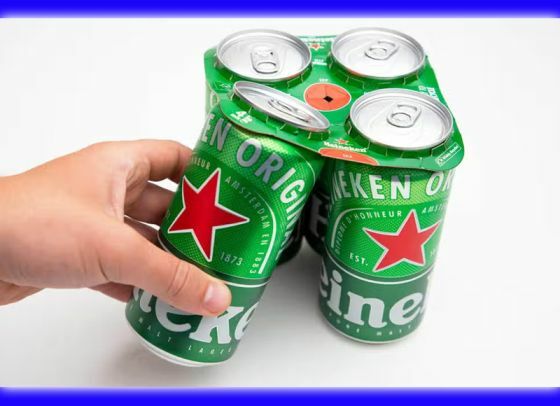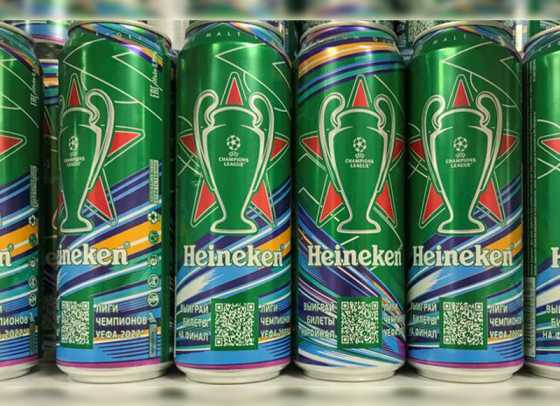Heineken Completes Exit from Russia After Ukraine Crisis, Incur £256M Loss: Employee Livelihoods Secured. Discover how Heineken successfully concludes its departure from the Russian market following the Ukraine crisis, incurring a £256M loss. Learn how the company ensured the security of employee livelihoods during this strategic transition.

Brewing giant Heineken has finalized its departure from the Russian market, marking the end of a process that spanned 18 months following the invasion of Ukraine. The Dutch company, renowned for its global beer brands including Heineken, Amstel, and Birra Moretti, announced the successful sale of its Russian business, encompassing seven breweries, to the Russian corporation Arnest Group for a nominal fee of 1 euro. This strategic move comes at a cost, with Heineken estimating a substantial loss of 300 million euros (£256 million). The extended timeline of this exit has drawn criticism, as the brewery faced challenges in navigating the complex aftermath of the conflict.
READ THIS:
- Nvidia Shatters Records: Riding the AI Boom to All-Time Highs and Trillion-Dollar Valuation
- Clinton Cards’ Strategy for Survival: 38 Store Closures to Prevent Bankruptcy and Secure Future
Heineken Completes Exit from Russia After Ukraine Crisis: Deliberate Exit Amidst Ongoing Crisis:
Heineken’s departure from Russia, a significant market for the brewing industry, comes in the aftermath of the Ukraine invasion. Approximately 18 months after the onset of the conflict, the company has successfully divested its Russian assets. In March of the previous year, Heineken had initially announced its intention to exit the Russian market, citing an unsustainable and non-viable business environment. The company, however, underscored its commitment to orchestrating an organized transfer of ownership to ensure stability amidst the tumultuous circumstances.

READ THIS: 2023/24 Cost of Living Payments: Financial Relief Updates You Need to Know
Challenges and Extended Timeline:
The exit process encountered unforeseen challenges, leading to a prolonged timeline that drew criticism from various quarters. The company’s leadership admitted that the process took significantly longer than initially anticipated. This delay was attributed to the intricate complexities of extricating a large manufacturing entity from a region facing geopolitical turmoil. Despite the prolonged period, Heineken’s chief executive and chairman, Dolf van den Brink, emphasized the importance of securing the livelihoods of the company’s employees and conducting a responsible exit strategy.
Priority on Employee Well-being:
Throughout the extended exit process, Heineken remained committed to safeguarding the interests of its local workforce in Russia. The company’s rationale for the extended timeline was rooted in its dedication to ensuring the well-being and stability of its employees during the transition. Despite challenges, the completion of the sale to Arnest Group is seen as a positive step that not only secures the futures of the 1,800 local staff members but also marks a responsible departure from the Russian market.
Future Under New Ownership:
Arnest Group, the Russian corporation that has acquired Heineken’s Russian business, has committed to maintaining the employment of the brewery’s local staff for a duration of three years. This pledge provides a sense of continuity and stability for the workforce, mitigating concerns over abrupt changes in employment status. The transition of ownership is expected to mark a new chapter for the breweries under Arnest Group’s management.
Conclusion:
Heineken’s completion of its exit from the Russian market, amidst the backdrop of the Ukraine crisis, signifies a strategic decision undertaken with the well-being of its workforce at the forefront. Despite the challenges that led to an extended exit timeline, the sale to Arnest Group ensures the preservation of jobs and a responsible departure from the region. This move highlights the complexities that global companies face when navigating geopolitical uncertainties and underscores Heineken’s commitment to a measured and employee-centric transition.
After reading the article “Heineken Completes Exit from Russia After Ukraine Crisis, Incur £256M Loss: Employee Livelihoods Secured”, please read below articles.
READ MORE:
- Wilko’s Fate: Majority of Stores Set to Close, Union Warns of Impending Redundancies
- Fueling the Green Race: UK Urged to Launch National Investment Fund for Net-Zero Edge
Q: Why did Heineken decide to exit the Russian market?
A: Heineken decided to exit the Russian market due to the non-sustainable and non-viable business environment, exacerbated by the ongoing Ukraine crisis.
Q: How long did it take for Heineken to complete its exit from Russia?
A: The exit process took approximately 18 months, longer than initially anticipated, due to the complexities of navigating the aftermath of the Ukraine conflict.
Q: What was the financial impact of Heineken’s exit from Russia?
A: Heineken incurred a substantial loss of £256 million (approximately 300 million euros) as a result of its exit from the Russian market.
Q: What role did employee well-being play in Heineken’s exit strategy?
A: Employee well-being was a top priority for Heineken during the exit process, with the company emphasizing the importance of securing the livelihoods of its 1,800 local staff members in Russia.
Q: Who acquired Heineken’s Russian business, and what commitments were made regarding the workforce?
A: Russian company Arnest Group acquired Heineken’s Russian business for a nominal fee of 1 euro. Arnest Group guaranteed the employment of Heineken’s 1,800 local staff for a period of three years under the new ownership.